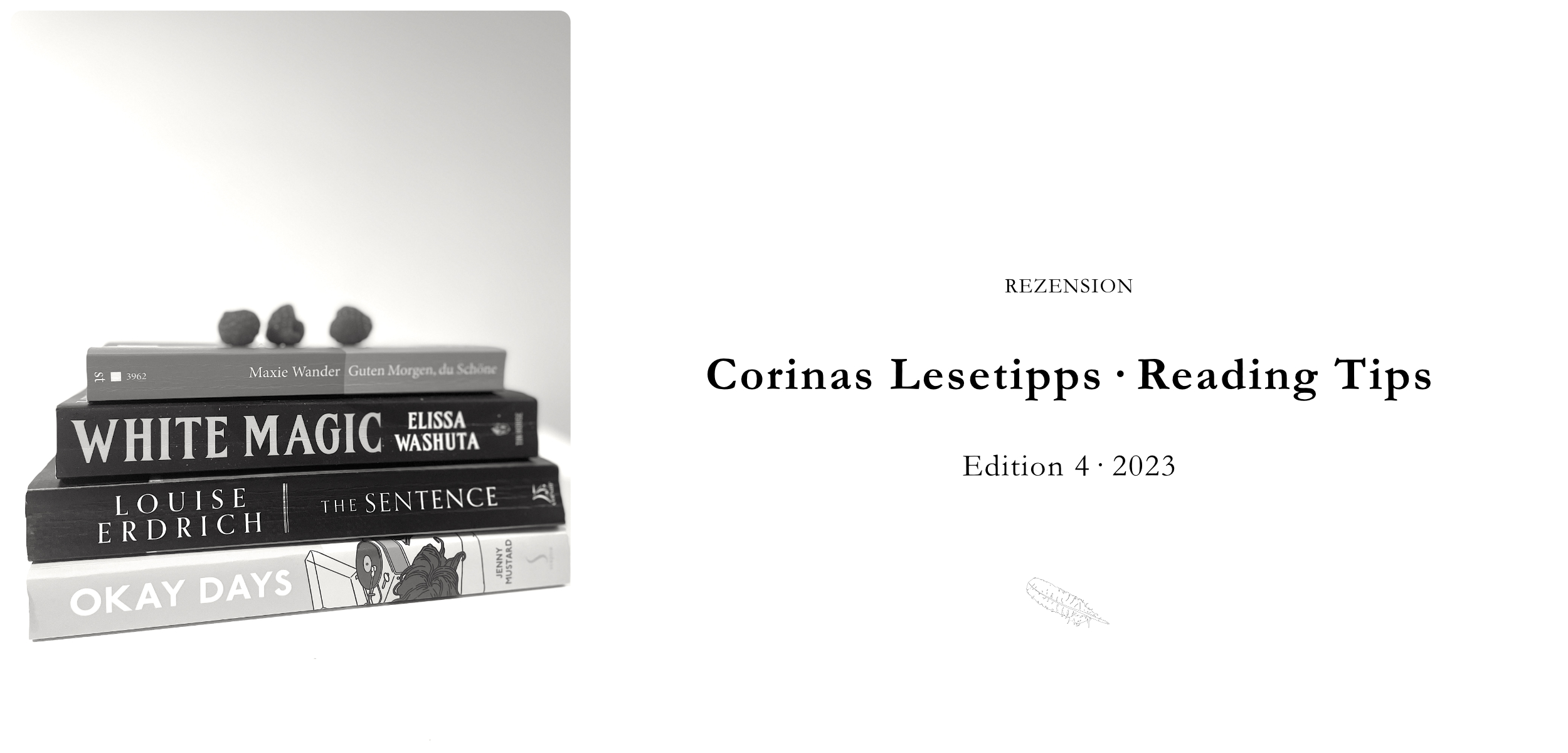
Auf Maxie Wanders Guten Morgen, du Schöne bin ich tatsächlich über Greta Tauberts Guten Morgen, du Schöner gekommen. Das Buch erschien erstmalig 1977 und porträtiert ostdeutsche Frauen unterschiedlichen Alters mit ihren Biografien und Wünschen an das Leben. Mich haben besonders die Vorstellungen der Frauen von einem erfüllten und gleichberechtigten Arbeits- und Privatleben fasziniert, und ich fand ihre größtenteils emanzipierten Haltungen zu einer kritischen Zeit in einer Republik, die es heute nicht mehr gibt, beeindruckend. Und wie so oft hat es mich auch beim Lesen dieses Buches nachdenklich gestimmt, dass seither Jahrzehnte ins Land gegangen sind, aber die Gleichstellung von Mann und Frau noch immer erst in wenigen Lebensbereichen etabliert ist.
White Magic by Elissa Washuta was recommended to me by an algorithm. Because I was looking for an easy summer read at the time, its recommendation was wrong in this regard, but the topic of the book – indigenous life today – and its literary implementation – experimental literature – were spot on. The protagonist is a descendant of the Cowlitz people, who live on the northwest coast of the USA and are one of the few remaining hunter-gatherer cultures. To give a tiny glimpse into their worldview, I would like to quote the following paragraph, »A long time ago, animals became people. Nobody was fully animal or fully person, as we think of a person now – these delineations appeared after the Changer transformed the world and turned the Animal People into animals, people, mountains, tideflats, and rivers. Most Cowlitz traditional stories (like those of Salish Sea peoples) come to us from the belly of the change. The Changer turned some Animal People into the spirits that watch over the land.« This quote is only partially emblematic of the entire collection of essays, which is, on the whole, quite dark. Nevertheless, I would like to recommend the book, it is challenging and demanding as well as mind-opening.
Louise Erdrich’s The Sentence turned out to be completely different than I imagined. When I heard the words bookstore and ghost, I somehow thought of a funny, maybe a little scary story. But then it was a wonderful literary trip for me to Minneapolis, the city in the US that I know best due to multiple visits and research trips, and which unfortunately has to look back on very tragic events in recent years. The latter is also taken up critically in this book and described from the perspective of the protagonist, a woman from the Ojibwe tribe. In addition, the book draws a good picture of today’s lives of indigenous people between tradition, resilience and repression and at the same time is a super exciting crime novel in terms of the spirit already mentioned. Printed on sustainably sourced paper.
Well, finally, here it is, my relatively lighter summer reading, although I was very moved towards the end (actually at the very last sentence on the very last page). I think I’ve been following Jenny Mustard on YouTube for close to a decade. So I was able to experience the creation of her debut novel Okay Days and I have to say: This book is amazing. The author’s narration is fresh, the episodes are entertaining, and the characters‘ experiences are vividly described. I read it in just a few days, roaming around London with the main characters and suffering with them in exciting and life-changing moments. I like that contemporary issues are given just as much consideration as the big questions of life. I also found the joy of stylistic experimentation, which generally characterizes Jenny Mustard as a person, particularly great. And what I would also like to emphasize is that the author is a proponent of the concept of minimalism – which is also reflected in the layout: I find it simply excellent in terms of font size, line spacing, and highlighting.
